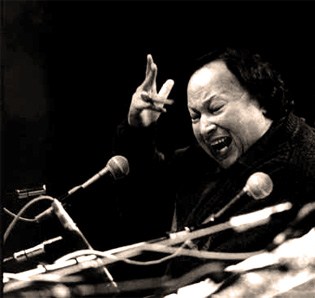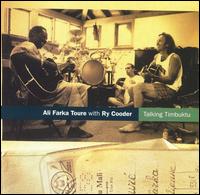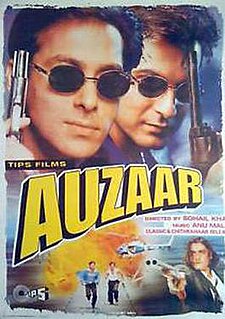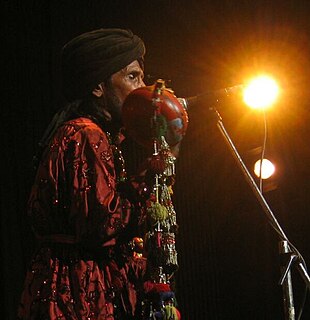
Nusrat Fateh Ali Khan, was a Pakistani vocalist, musician and music director primarily a singer of Qawwali, a form of Sufi Islamic devotional music. Widely regarded as the greatest sufi singer in the Urdu language and the South Asia's greatest qawwali singer, he is often referred to as "Shahenshah-e-Qawwali". He was described as the 4th greatest singer of all time by LA Weekly in 2016. He possessed an extraordinary range of vocal abilities and could perform at a high level of intensity for several hours. He belonged to the Patiala gharana extending the 600-year old Qawwali tradition of his family, Khan is widely credited with introducing Qawwali music to international audiences.

The Chishtī Order is a Sunni Sufi order within the mystic Sufi tradition of Islam. It began in Chisht, a small town near Herat, Afghanistan, about 930 CE. The Chishti Order is known for its emphasis on love, tolerance, and openness. Chishti Sharif is name of village in Afghanistan near Iran border.

Qawwali is a form of Sufi Islamic devotional singing, originating from the Indian subcontinent, and notably popular in the Punjab and Sindh regions of Pakistan; in Hyderabad, Delhi and other parts of India, especially North India; as well as the Dhaka and Chittagong Divisions of Bangladesh.
Allah Hoo is a traditional Sufi chant (dhikr) consisting of the word for God run together three times, followed by Truth (haqq): Allāhu Allāhu Allāhu Haqq, itself repeated three times over. According to Sufi tradition, this formula was introduced by Abu Bakr as he initiated the Naqshbandi tradition. Other Dhikrs consist of simple Allāhu Allāhu run together 400 or 600 times.

Islamic music may refer to religious music, as performed in Islamic public services or private devotions, or more generally to musical traditions of the Muslim world. The classic heartland of Islam is the Middle East, North Africa, the Horn of Africa, Iran, Central Asia, and South Asia. Due to Islam being a multi-ethnic religion, the musical expression of its adherents is vastly diverse. Indigenous traditions of various part have influenced the musical styles popular among Muslims today.

Talking Timbuktu is the 1994 collaboration album between Malian guitarist Ali Farka Touré and American guitarist/producer Ry Cooder. The guitar riff from the song "Diaraby" was selected for the Geo-quiz segment of The World PRI-BBC radio program and was retained by popular demand when put to a vote by the listeners. In 2009, the album was awarded a gold certification from the Independent Music Companies Association which indicated sales of at least 100,000 copies throughout Europe.

Allan Fakir, was a Pakistani folk singer. One of the foremost exponents of Sufi music in Pakistan. He was particularly known for his ecstatic style of performance, marked with extreme devotional rhetoric and Sufi dance-singing.
Sufi music is the devotional music of the Sufis, inspired by the works of Sufi poets, like Rumi, Hafiz, Bulleh Shah, Amir Khusrow and Khwaja Ghulam Farid.

Shafqat Amanat Ali Khan, is a Pakistani classical singer belonging to Patiala Gharana lineage. He was the lead vocalist of the Pakistani rock band Fuzön until 2006. He was awarded the President's Pride of Performance civil award on 23 March 2008.
A manqabat is a Sufi devotional poem, in praise of Ali ibn Abi Talib, the son-in-law of Muhammad, or of any Sufi saint.

1001 Albums You Must Hear Before You Die is a musical reference book first published in 2005 by Universe Publishing. Part of the 1001 Before You Die series, it compiles writings and information on albums chosen by a panel of music critics to be the most important, influential, and best in popular music between the 1950s and the 2010s. The book is edited by Robert Dimery, an English writer and editor who had previously worked for magazines such as Time Out and Vogue.

Auzaar is a 1997 Indian Hindi action thriller film directed by Sohail Khan and written by Anwar Khan. The film starred Salman Khan, Sanjay Kapoor and Shilpa Shetty in lead roles. The movie did average business at the box office.

Saieen Zahoor Ahmed or Saeen Zahur Ahmad is a leading Sufi musician from Pakistan. He has spent most of his life singing in Sufi shrines, and didn't produce a record until 2006, when he was nominated for the BBC World Music awards based on word of mouth. He emerged as the "best BBC voice of the year 2006", Saieen is not his first name but a Sindhi honorific title and is also spelled as Sain.
Shriram Iyer is an Indian singer who has provided the music for the Bollywood film, Iqbal and also sung the opening theme song for the Zee TV show, Sa Re Ga Ma Pa Challenge 2007. He is lead singer of the fusion band "OM The Fusion Band".
Shaukat Ali, also known as Shaukat Ali Khan, is a folk singer from Pakistan.

Bombay is the soundtrack to the 1995 Indian film of the same name, with eight tracks composed by A. R. Rahman. The film was directed by Mani Ratnam, and stars Arvind Swamy and Manisha Koirala in lead roles, while the soundtrack album was released in 1995 by Pyramid. The Indian film was originally a Tamil film dubbed into Hindi, Telugu and Malayalam. The soundtrack was thus released in multiple languages. The lyrics for the Tamil version were written by Vairamuthu, except for the song "Halla Gulla", which was written by Vaali. The lyrics for the Hindi and Telugu versions were written by Mehboob and Veturi Sundararama Murthy, respectively. The Hindi version includes Urdu lyrics.
Dama Dam Mast Qalandar is a spiritual Sufi song written in the honour of the most revered Sufi saint of Sindh, Lal Shahbaz Qalandar (1177–1274) of Sehwan Sharif. The original poem was initially written by the 13th-century Sufi poet Amir Khusrow, then further modified by Bulleh Shah in the 18th century.

Rockstar is the soundtrack album, composed by A. R. Rahman, to the 2011 Hindi musical film of the same name, directed by Imtiaz Ali, and starring Ranbir Kapoor and Nargis Fakhri in the lead roles. The film also stars Shammi Kapoor, who makes his last silver screen appearance in the film. The film is jointly produced by Shree Ashtavinayak Cine Vision Ltd and Eros International. The album features fourteen tracks, and was released on 30 September 2011 by T-Series to extremely positive critical reception and hysterical response from fans, grabbing nominations and numerous music awards held in the subsequent year. The entire album topped the iTunes world charts 2011 and continued its legacy until early 2012. The Indian Express has termed the film's soundtrack 'A Milestone for Bollywood'.
Most of Nusrat Fateh Ali Khan's early music was recorded with Rehmat Gramophone House later turned RGH Label. Throughout the ’70s and early ’80s Nusrat Fateh Ali Khan released hundreds of cassettes, most of them containing one or two lengthy songs. Chris Nickson, of Global Rhythm, argues that trying to make order of Khan's entire discography would be a nightmare.

Fanna-Fi-Allah is a Canadian-American group which plays Qawwali, a form of Sufi devotional music popular in South Asia. It consists of seven members. Group leader Tahir Faridi Qawwal, originally from Nova Scotia, has studied music from some of the greatest qawwali masters in Pakistan and India over many years. Aminah Chishti is the student of Ustad Dildar Hussain and is the first female tabla player to be initiated into the lineage of Qawwali. The group are ambassadors of sufi qawwali music in the west.













